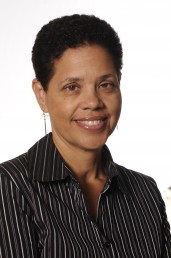Grant will help build awareness, use of well-woman visit

Arden Handler, professor of community health sciences and principal investigator of the Center of Excellence in Maternal and Child Health in the UIC School of Public Health.
The University of Illinois at Chicago School of Public Health has received a $241,000 grant from the W. K. Kellogg Foundation to improve utilization of the well-woman visit among low-income women in eight U.S. cities.
The annual well-woman visit focuses on preventive care and includes a full checkup, separate from any other visit for sickness or injury, and may include shots, a Pap test, screenings, education and counseling to help patients make informed health decisions that lead to a healthier life. A well-woman visit is covered without a copay by marketplace insurance plans under the Affordable Care Act.
“While the Affordable Care Act will provide coverage to millions of uninsured women, creating an extraordinary opportunity to improve women’s health not only during pregnancy but before, during and after pregnancy, women’s awareness of the importance of the well-woman visit is unknown,” said Arden Handler, professor of community health sciences and principal investigator of the Center of Excellence in Maternal and Child Health in the UIC School of Public Health. “This is particularly true among non-pregnant, low-income women, many of whom are new to insurance.”
The project is led by Handler and Nadine Peacock, associate professor of community health sciences in the UIC School of Public Health, in partnership with CityMatCH, a membership organization based at the University of Nebraska Medical Center that includes leaders of city and county health departments’ maternal and child health programs. Eight cities are included in the project: Chicago, Omaha, Detroit, New Orleans, Oakland, California, Nashville and Jackson, Mississippi.
Handler and Peacock will coordinate listening sessions with women in each city to learn about their knowledge of the well-woman visit and identify factors that make it easier or harder for women to take advantage of the visit. They will also collect stories about the conditions of women’s lives that affect their ability to be healthy and access health care.

Nadine Peacock, associate professor of community health sciences in the UIC School of Public Health.
“Improved access to medical care is just one piece of the puzzle for improving women’s health,” says Peacock. “We also need to learn about all the elements that play into women’s ability to stay healthy.”
Barriers to care can include social determinants of health, like access to transportation, unemployment, lack of child care, or domestic violence, Peacock explains. And women in different cities may face different obstacles to getting health care.
Lack of affordable transportation to and from medical centers may be an issue in one city but not in another. “If through our listening sessions we identify transportation as a barrier to care, then we might recommend that transportation vouchers be provided to women of childbearing age for medical visits in that city,” Handler says.
Based on the information they gather, the researchers will develop city-specific recommendations to share with CityMatCH leaders and other urban public health agencies that will enable them to advocate for systems and policy changes in their communities that can lead to improved access to health care and better health for women. They will also create tailored educational campaigns to help cities promote the well-woman visit.
The well-woman visit is a valuable tool for improving women’s and children’s health that can be better utilized, Handler explained. “Obtaining the services provided by the well-woman visit before a woman becomes pregnant can lead to better outcomes for both mother and child, and using the visit annually regardless of pregnancy status can play a key role in keeping women healthy.”
